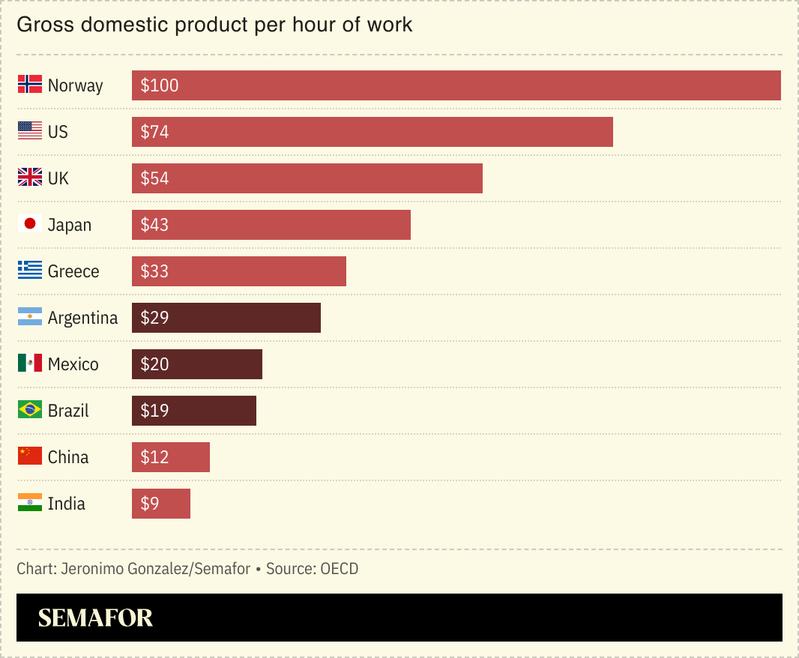The News
Argentina’s inflation rate was forecast to have increased by 5% in June, breaking a five-month streak of cooling price rises and threatening much-needed economic growth for the country.
President Javier Milei’s libertarian plan to salvage the country’s broken economy, which includes the devaluation of the local currency by more than half and severe cuts to government spending, has been praised internationally as it brought inflation to historic lows, but the road ahead is “narrowing,” Bloomberg noted, and low productivity continues to plague the country and Latin America as a whole.

SIGNALS
Milei’s focus on inflation is impacting other economic objectives
Milei’s economic “shock therapy” is starting to show some cracks, Bloomberg argued, and he’s had to tone down some of his more aggressive measures to maintain popular support. He postponed fuel tax and utility price increases, which would have brought inflation up by another 1.2%, and didn’t increase public transportation fares, which have been frozen since spring. But Milei’s focus on keeping inflation in check could come at the expense of other economic objectives, a Buenos Aires-based economist told the outlet: “Postponing more price adjustments means those inflation wins are a bit of bread for today, but hunger for tomorrow.”
Unlike other presidents, Milei has done ‘many things right’
Milei inherited a messy economy, but unlike many of his predecessors, has done “many things right” early in his presidency, a Latin America economy expert wrote in the Financial Times. Milei eliminated the public sector deficit, adjusted the real values of regulated prices and the real exchange rate “to a more realistic level,” and pushed for deregulation and modernization. For ordinary people, Milei’s austerity policy has had “devastating” consequences, Foreign Policy wrote in March, as salaries and pensions have not kept up with inflation, plunging more people into poverty. But the analyst argued that inflation has not been as bad as expected, and Milei’s managed to keep his approval rate up so far.
Chinese competition and lending pullback has stagnated growth in Latin America
Cities in Latin America are less productive than the rest of the world, stunting the region’s economic growth since 2000, Shannon K. O’Neil, an expert from the Council on Foreign Relations wrote, arguing that the problem stems partly from deindustrialization. Manufacturing took a hit especially from Chinese competition, forcing workers into less productive sectors like retail and construction. Urbanization has also failed to improve people’s economic prospects owing to congestion and poor infrastructure, O’Neil noted, especially after Chinese lenders pulled back from Latin America. However, the region’s governments now “have a greater say” in bringing back transparency to public projects backed by funders like the World Bank, she argued.


